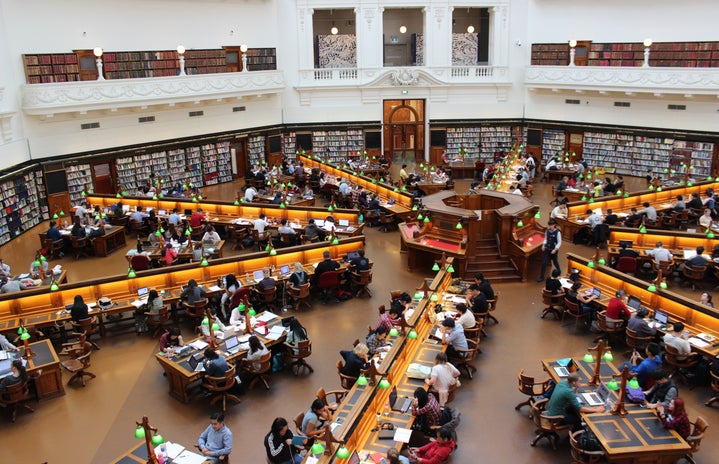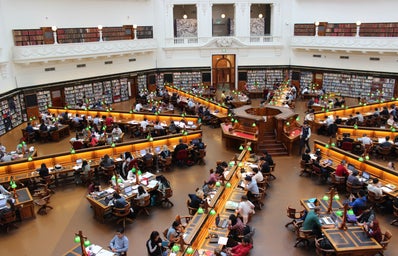Welcome to Episode 2 of Three Changes a Week: your weekly update on how to save the planet.
This week I want to focus on a central issue and one of the main, daily instances of single-use plastic: food.
Supermarket aisles are lined with product after product wrapped in unnecessary plastic that is necessarily designed to be simply thrown in the bin. Of course, an important part of a earth-saving mission will be to campaign for supermarkets to stop using plastics, such as in this campaign. Some supermarkets have already started to make changes – Iceland is planning to make all their own-brand products plastic free, for example.
However, any changes that reach this high up the corporate tree take a long time to show results – so we need to start making small changes. As Autumn is upon us, consider how you can get fantastic seasonal fruit and veg from markets and veg boxes, stock up on lentils and pulses for warming stews in bulk stores, and enjoy home cooked Autumnal goodies instead of shop-bought ones.
One of the main things that needs to preface this article is the fact that research shows that cutting down on meat and dairy is one of the easiest ways to cut down your environmental impact (you can see a full recent report here, or an article summarising the findings here). So, consider not only buying veg without plastic but also making veg the basis of your diet – and have fun scouring the internet for new and exciting veggie or vegan recipes to try!
Here are three changes to make this week to make your world a better, more conscious place.
1. CHOOSE FRUIT AND VEG WITHOUT PLASTIC
Ease rating: ****
Cost: -£ (this will save you!)
Vegetables are, oddly, a) one of the places where you are most likely to find unnecessary plastic packaging (bananas naturally have their own protective skins, guys) and b) one of the easiest ways to get food without plastic.
Huh?
In a supermarket, you’ll probably be offered two options; for example, a plastic box of mushrooms, cling wrapped in more plastic, or a basket of mushrooms with a paper bag to put as many as you need in. Not only is it already obvious which is the better option, but the non-plastic wrapped version is also significantly cheaper per 100g. And you can pick how many you want, meaning less in the bin and less cash down the drain. You’ll find the same options for carrots, potatoes, sweet potatoes, tomatoes, onions…
This is only the first bit of good news. Occasionally you may find that a deal on plastic-bagged produce means it is cheaper than loose, but never largely.
Secondly, consider not buying your fruit and veg from the supermarket. Check out a greengrocer or farmers’ market (Exeter’s local one is on the high street on Thursdays) – it might seem a little bourgeoise, but often these places are actually damn cheap. You’ll also find things, like interesting local squash or artisan breads, that you wouldn’t in the supermarket. Or, team up with some friends to get a local veg box, such as this one, the cheapest I have found, although there are many available. You never have to worry about picking out nice looking veg again – and not only is this going to save you money, it’s going to make you healthier too!
2. FIND A ZERO WASTE STORE NEAR YOU – OR BUY IN BULK
Ease rating: bulk stores *** / buying in bulk *****
Cost: bulk stores will vary, but probably cost you extra versus supermarkets
Unfortunately, whilst this is a very effective change, it is neither the easiest nor cheapest you can make. Bulk, or zero waste stores, offer dry goods in big vats which you bring your own containers and fill up. You know those Instagrammable pantries with everything in glass jars? Like that – and it goes straight in the jar without the plastic.
Bulk stores do take more time out of your day, but they do save a lot on plastic, and you would have to do it less than your regular shop, as you buy a lot in one go.
The main issue is that Exeter isn’t great in terms of bulk stores. The Real Food Shop, next to Exeter Central Station, offers a few options, but it isn’t cheap nor does it give a lot of options. If you live in a larger city, however, you may find a great zero waste store in your area.
So for now, see if it is possible to buy some of your produce in a bulk store. You can also look in other high-street shops, and might be surprised to find zero-waste options where you didn’t expect. Holland and Barrett, for example, stocks a fill-your-own station for dried fruit, nuts and other snacky goodies. Continue to peruse farmers markets for things like bread, or cheese, with little-to-no packaging.
Don’t forget that buying goods in bulk, even with packaging, means there is less packaging. For things that don’t go off, always get the biggest amount you can store, even if this means keeping 5kg of pasta in the back of your cupboard for three months. There will be less overall packaging, and the price per weight will also be lower.
3. MAKE YOUR OWN FOOD
Ease rating: ****
Cost: -£ (again, this will save you £££) or less than £10 a reusable coffee cup
Takeaway food packaging, whether that is a coffee cup, a polystyrene chip tray, or the packaging from a supermarket sandwich, is one of the worst uses of single-use disposables there is.
Luckily, it is very easy to avoid. Packing yourself a tasty bagel in a Tupperware box for lunch, rather than dishing out £4+ for an overpriced, packaged sandwich on campus. You can make sure you use the best ingredients, try out a wider variety of fillings that you enjoy and that suit your diet, and make sure you get plenty every time.
If you absolutely do want to buy something readymade, consider bringing own containers and cutlery (especially as a fork shoved in the bottom of your bag takes up very little space). For example, if you were buying a curry from the Friday on campus food stalls – ask them if they can fill up your own pot instead of a disposable one.
Failing this, try and pick stalls that use paper pots and wooden cutlery, over plastic, as is easier to recycle in most cases, and doesn’t last so long in the environment.
Similarly, don’t forget to ditch the disposable coffee cup! There are many a sustainable and gorgeous option for reusable coffee cups, and many made out of natural materials like bamboo and wheatgrass fibre, that will eventually break down. These cost less than £10, and often entitle you to a discount off your drink.
Your Friday night Indian also doesn’t have a great impact on the environment. Yes, it is a nice treat – but so would be taking the time to cook up an authentic feast with friends – without the packaging. The internet is filled with quick and easy ways to make your favourite takeout dishes. Coming home from a night out and tempted by some chips? How about – yes, its more effort, but will save you lots – throwing on a batch of chilli in a slow cooker before going out so it is ready, hot, delicious when you get in? Nothing could be easier – check out a recipe here. You’ll have lunch for when you are hung over the next day too…
Made these changes or already doing them? Post a picture to Instagram or Twitter and tag it to #3changesaweek to spread the word!


